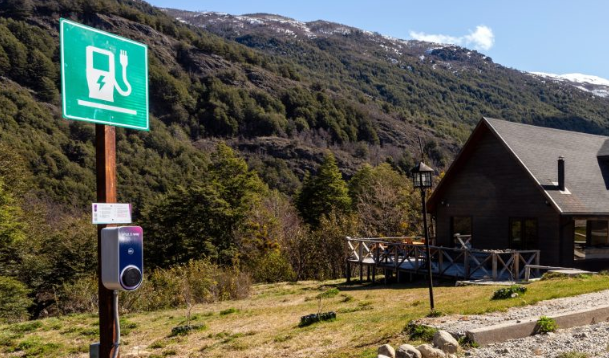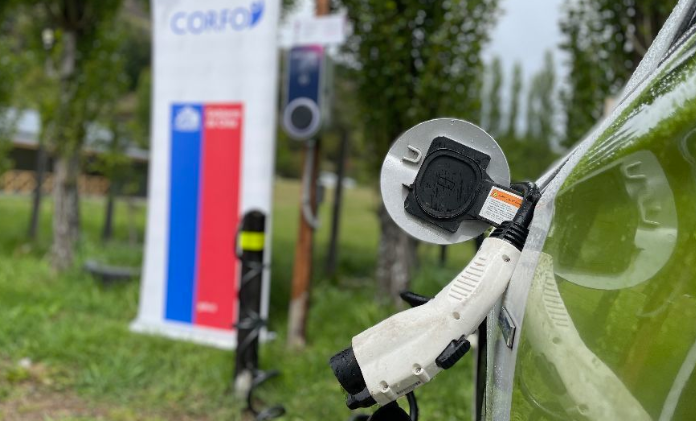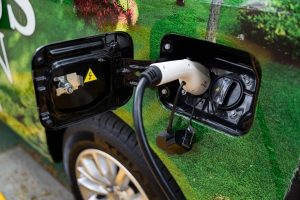
Enel Leads “Electromobility in Carretera Austral” Project in Chile

Through an important alliance between the public and private sectors, Enel is leading the PER Turismo Program, where together with Big Magazine, Corfo Aysén is carrying out the initiative “Electromobility in Carretera Austral.”
The project currently allows more than 1,200 kilometers, between Puerto Montt in the Los Lagos Region to Villa O’Higgins in the Aysén Region, to have a network of 17 public chargers for electric vehicles that will allow to travel a good part of the Chilean Patagonia.
Authorities and representatives of the companies involved arrived at Villa Mañihuales in the Aysén Region for the ribbon cutting ceremony that inaugurates this electro-route that connects 1221 kilometers thanks to the benefits of electromobility and its emission-free technology.

Project Details
Electromobility in Carretera Austral is a public charging network for electric vehicles with 17 stations installed and operated by Enel.
The devices, in charge mode 3, will operate at a maximum power of 7.4 kW. As they are “Socket” type chargers, they allow the supply of all types of vehicles that have a public charging hose with at least one European type input.
Read also: Enel X and Marcopolo Present Metrorrey’s First Electric Bus
For the charging operation, users must have a special Enel application and follow the instructions.
One of the advantages of this equipment is that it has WayMeter technology, a feature that optimizes power balancing. A benefit that allows charging the vehicle without altering the consumption of the enclosure from where the energy is supplied.
High Technology
Humberto Marín Leiva, Director of Corfo Aysén, indicated that the project aims to promote the use of more efficient, economic and clean technologies to achieve more sustainable tourism in the region.
“This implies reducing the environmental impact and ensuring long-term benefits for the communities and the territory of Aysén. I want to highlight the commitment of the government I represent to sustainable development and environmental preservation by integrating electric mobility in one of the most impressive landscapes of our country,” he said.
Marín acknowledged the joint effort they are making to promote cleaner technologies. “We are building a path to a more sustainable future and I am excited about the positive impact this project will have on our beautiful region.”
For his part, Jaime Guazzini, president of the PER Turismo Executive Committee, said they are fully committed to supporting projects that promote sustainability in tourism.
“This initiative aligns perfectly with our vision of becoming a sustainable tourism destination. We welcome this electromobility project that contributes to responsible tourism, benefiting local communities and preserving our valuable natural heritage,” he added.





